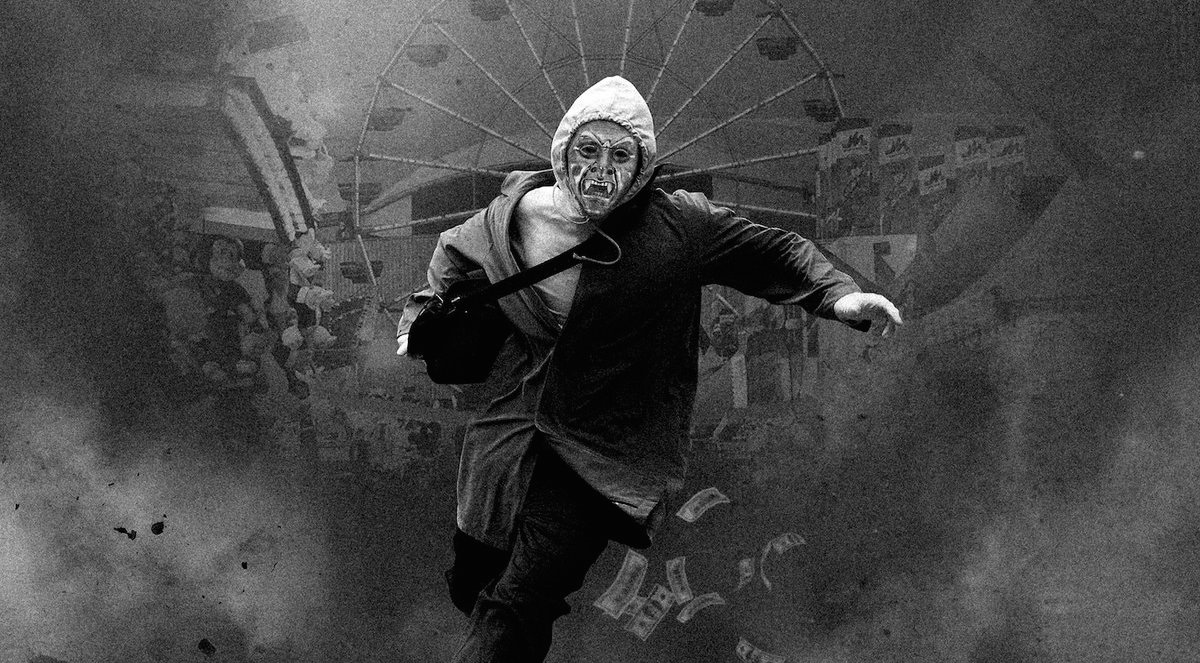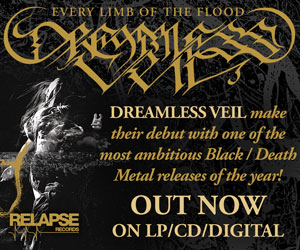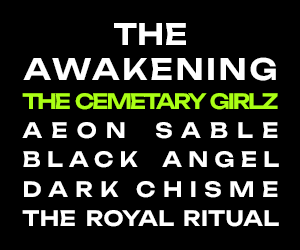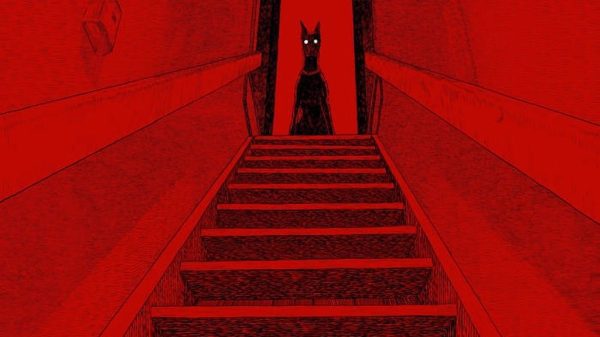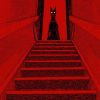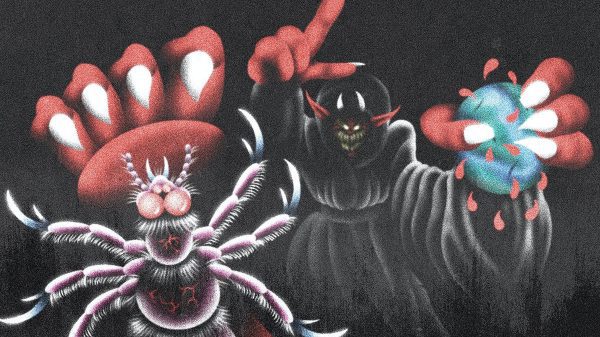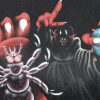This is a continuation of Cvlt Nation’s interview with Regional Justice Center’s Ian Shelton. You can read the first installment here.
In your Regional Justice Center lyrics, family seems to be a really consistent theme. Could you talk a little bit about what family means to you?
It’s the ultimate influencer. Nothing ultimately shapes your way of seeing the world more than your family, and I think that if more people took their time after they leave their first family unit before they created their own, that they take more away from that and know how to conduct themselves in their everyday lives. When I was really young, one of the first things I ever wanted to do was to do stand-up comedy, and I would tell these crazy stories about my family, and it would make people laugh. I have nothing but love for my family, and we are still growing together and learning all the time, and still addressing things. And that’s what I love in movies and art, too. In movies, I like comedies and family dramas. It’s something I’ve always been drawn to. My mom gave me books on these things. She gave me Running With Scissors. It’s about a fucked up family. She would put me on to stuff. She would say, “This reminds me of you.” She knew the importance of seeing that reflection. And it’s always been something that I’ve always been focused on artistically.
Although a lot of the focus is on kind of processing things you’ve experienced, it also seems like you are focused on bonding with and maintaining relationships with your family. It’s something that comes up again and again in the actual product and in the process.
Everything is about trying to change the perspective from only seeing my own. A lot of these songs have a common theme. Everything is saying, “I see where your pain is, and I see at what point you’re trying to transfer that pain on to somebody else, and I happen to be that somebody else. Or maybe my little brother was that somebody else. Or maybe my dad was that somebody else. Ultimately, I’m trying to look at the bigger picture and see how we were fitting into society as a whole at that time. On the last song, I say, “Meant to thrive but left to die,” and that’s how I feel about everything: through this generational hand-me-down of trauma, we have to fucking “action movie” are way out of our own pain.
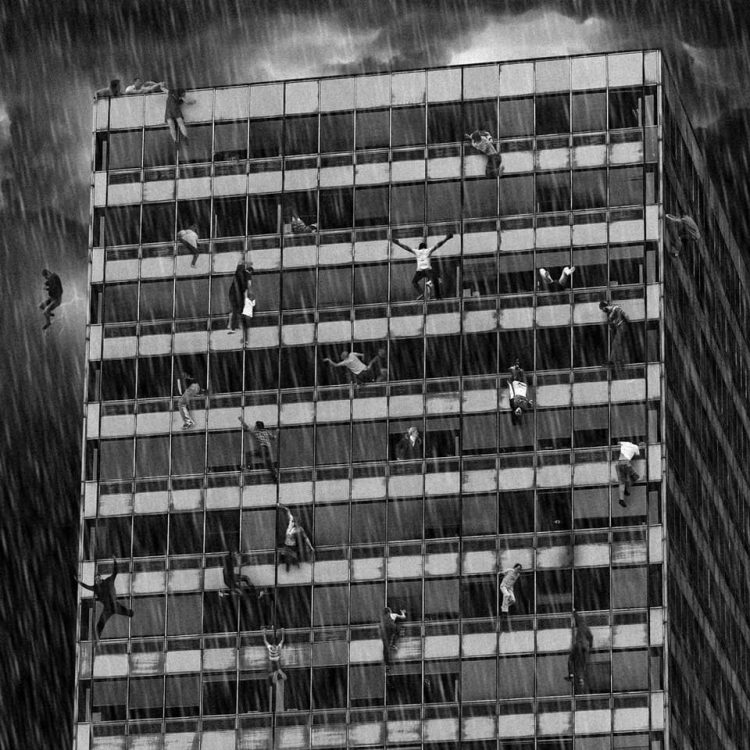
I’m glad you brought up the “…And Punishment” lyrics. It’s the perfect conclusion for that album. It wraps everything up and summarizes everything with the last two lines, “I wish there was a way to get back home, but now we’re left to carry the weight.” Can you talk about those lines?
That is a reference to Paul McCartney and John Lennon’s lyrics, and I just felt I couldn’t say it better. In the end, I still get really emotional thinking about “I wish I could go back. I wish I could go back and experience it again. No matter how fucking painful and terrible everything was. That reunion, sometimes, feels like it would be better than what I have now. I am someone who struggles with nostalgia a lot. When winter comes and the cold comes, I’m thinking about the past. It was not great, but at the same time, everything would be different, and maybe you could do something differently in that experience. I just felt like that lyric sums up how I feel.
I feel it’s a really beautiful way to end the album, and it’s one that really drew me in and made me listen to everything again. It’s one that speaks to me as somebody who works with kids, some of whom are in pretty challenging situations at home. Seeing you process it as an adult was kind of therapeutic for me.
I think about all those relationships with teachers I had. Those were some of the guiding lights that kept me out of trouble. I think that I suffer from some terrible amount of self-awareness, where if I did something, I would literally think, “What would this person think about it if I was smoking weed?” I was kind of a nerd, and I didn’t really do that much bad shit because I was always kind of afraid of what those teachers who cared about me would think.
That sounds like an inner-editor to me.
That’s probably where the inner editor is. It’s in my actions. And that’s where songs like “Inhuman Joy” come from. None of these songs are accusatory. Asking, “Do you lie to get what you want?” is me asking myself that, it’s me asking someone else that, it’s me just putting it out there. Since I wrote that lyric, I’m applying it to my everyday life because I don’t want to be lacking that self-awareness of writing a lyric and putting it out there for other people but not living by it. Since then, I’m like, “What are my intentions with what I’m doing? It may not be a lie in words, but is it a lie in action? You try to have everything apply to yourself.
You mentioned stand-up comedy, and in your conversation with Trevor, you talked about silliness as an ingredient in powerviolence or in the environment around powerviolence. Do you think silliness is an important ingredient in powerviolence?
Well, I think it’s a ridiculous music form. You want to listen to minute-long or seconds-long songs that are unintelligible to most people? That’s ridiculous. It’s silly. And hardcore, in general, is a little bit ridiculous: “I want to write the craziest thing that invokes this type of reaction in the listener.” It’s silly, but that lets down guards to let out other things. That ridiculousness can lend itself to that creation of something that means more. I saw someone calling us a joke band, and I was like, “What the fuck are you talking about?” and they were talking about our Twitter. But that’s not the art; the art is the music. Someone else said, “I thought this band had something more important to say?” But I’m a fucking human being. I have a multi-faceted life. There’s this idea that, because you have something serious to say, you can’t have anything not serious to say. If you were only doom and gloom all the time, nobody’s going to listen to you. I try to present everything as my actual character. You want to provide a whole person because nobody’s interested in just this one-dimensional thing. It’s just a weird branding exercise that everyone thinks you should be doom and gloom 24/7. I don’t gel with that. I think there should be closeness between who you present to the world and who you are. I try to present myself as I am.
Do you think that powerviolence and grindcore lend themselves to humor more than other genres?
I think it’s a cultural thing. It’s interesting because the joke cover bands are gay joke cover bands, and that was something that culturally was established with Gayrilla Biscuits and with Queercore making things gay. A huge amount of anything that happens in the modern day is based upon traditionalism, so I think that because that is established within the tradition, people ape that. I participate in that tradition as well. I don’t know if I would have made a “normal” hardcore band with the name Regional Justice Center, but it seemed to fit because of the tradition of the genre.
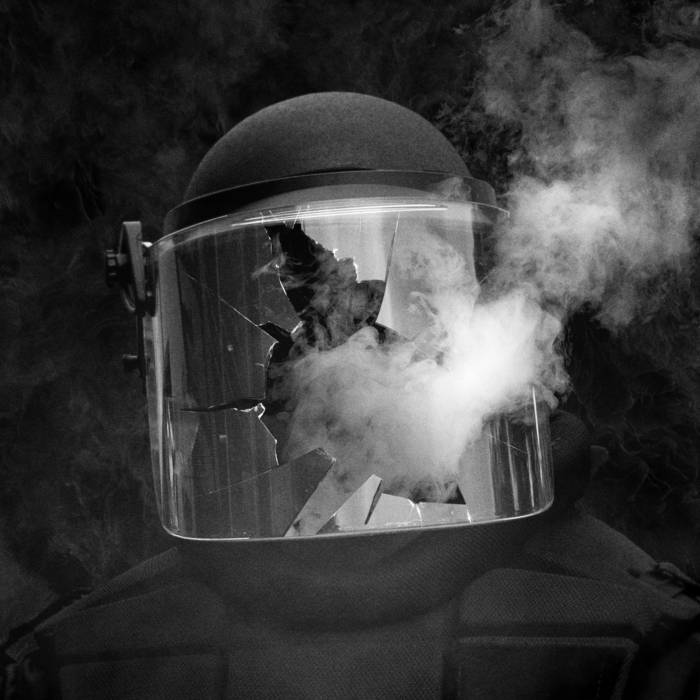
You’ve had a few covers done by Mark McCoy at this point. Do you feel like his aesthetic just fits, or do you consider him an artistic or musical influence?
He’s a musical influence, for sure. When I heard “Marriage Can Suck It” by Charles Bronson, it changed my life. It was like, “Wow, this is what I’m going to do now.” It was the confrontational nature of all the art that he’s made, and that gels with my own confrontational self and the way I like to express myself. Ultimately, I think that the art that he makes has a bigger world than the art of other people. What he’s created with us is basically a universe. When this band is done, and we have all the pieces done by Mark, you’ll be able to look at all of them and realize that they are all like in a movie. It’s all going to be one cinematic world. In World of Inconvenience, you see the world behind the prison walls, you see Seattle behind the prison walls. In Institution, you see a luxury apartment within a prison, behind bars. In Crime and Punishment, we see the chaos happening outside of that prison. I was thinking the other day that I should just give him some money to make some more “on world” stuff. I just want to see it. I just want more of it.
You’re a musician first, I think, but you’re also a writer, and you’re a filmmaker. Can you talk about what art means to you?
Art was just the ultimate way I thought about processing the world. With the title of this record, it’s clear that there was some degree of repackaging. You put your name next to a thing that used to have someone else’s name, and it’s a different piece of art. And I think that’s artistic process as a whole. The way that hardcore has done it with literally taking someone else’s photo and putting your name on it, that’s not the same thing as art, but when re-tailor the tools of the world around you that other people have used, then you have a new statement. Basically, that’s all I’ve ever wanted to do. I thought I was going to write novels when I was in third grade, and the whole thing was just about repackaging things that I had seen but through my own lens. That’s basically what it ends up being. I don’t ever try to act as though I’m doing something brand new or something totally original. I just hope that people haven’t seen the combination of ingredients that I bring to anything that I touch. It’s egotistical, it’s selfish, it’s self-involved. But that’s the process of all art, and I don’t claim to have any bigger intentions than that.
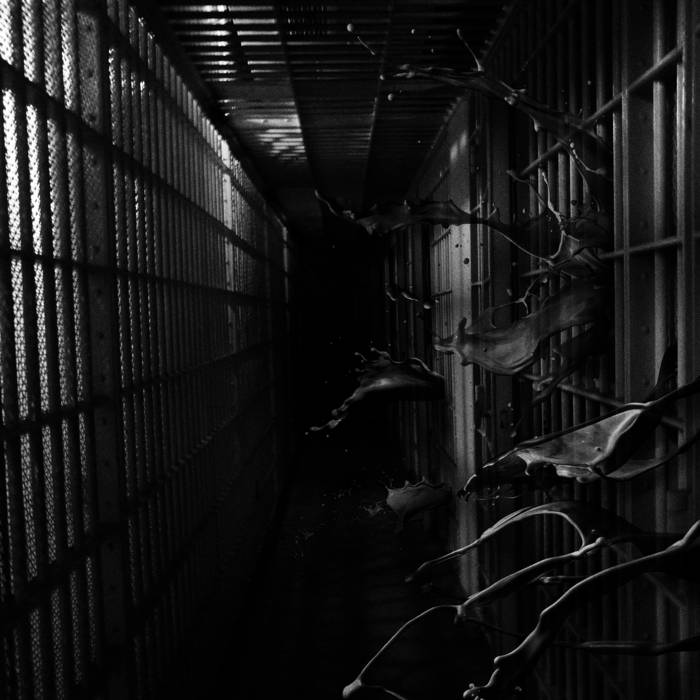
Can you talk about your approach to storytelling, whether it’s through filmmaking or songwriting?
I always think in terms of the tone I want to establish. You have a blank world, and you want it to feel a certain way because you want people to feel the way that you’re feeling in a moment. With Crime and Punishment, I knew so many of the song titles going into this record. I thought, “This is what I want to grab somebody with.” Songs like “Dust Off,” “Taught to Steal,” “Violent Crime,” and “Crime and Punishment.” That was kind of the start of that world-building. You start out with one intention. I thought I was starting with a cross-section of the ways that I was fucked up and the ways that I passed that trauma on to somebody else, but instead, it ended up being more of this “cause and effect” abstraction that I had. You start with one concept, or one theme, or one tone, and then you end up somewhere else. Usually, it never ends up what you think it will be when you start.
That’s why I saw this album as a longer work with a thematic arc that really read as a novel in music form. Can you elaborate on what you said earlier about not just spoon-feeding your messages or topics to the audience?
You have to get people to the ability to misinterpret; otherwise, they’ll take away nothing. It’s the terrifying part, but otherwise, there’s no art in it. We’re coming from this generation “tumblr-art,” where it was telling you what you needed to feel. It’s telling you how to interpret it. How many movies and television shows are we going to roll our eyes at because they’re going to, suddenly, have the character stop and say the exact right anti-racist/anti-sexist/anti-homophobic thing? That isn’t good art. That’s just something to satisfy a cultural moment and because there’s no interpretation, it will not stand the test of time. The pieces of art that make you feel a certain way about your own actions or make you feel uncomfortable, those are the things that you will have learned something through, whether or not you know it. Or maybe you’re mad about it because of your misinterpretation, but that says more about you than it does about the piece. Ultimately, I’d rather give people the rope to hang themselves with than be boring.
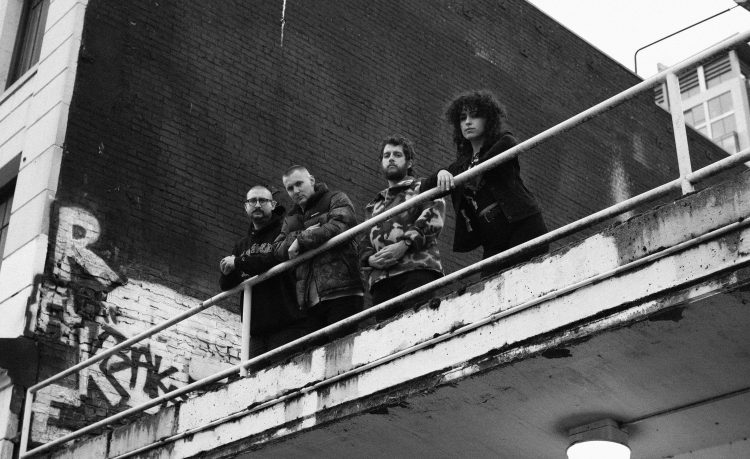
Crime and Punishment was produced, engineered, and mixed by Taylor Young at The Pit Recording Studio.
It was mastered by Brad Boatright at Audiosiege.
The layout and design is by Mark McCoy.
It is released by Closed Casket Activities.

